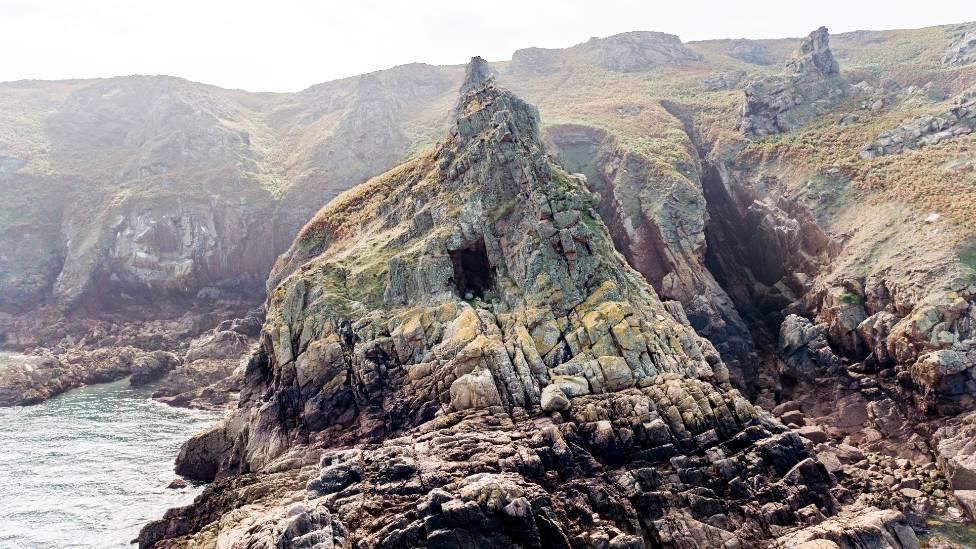Limpet shells and pottery among Iron Age dig finds
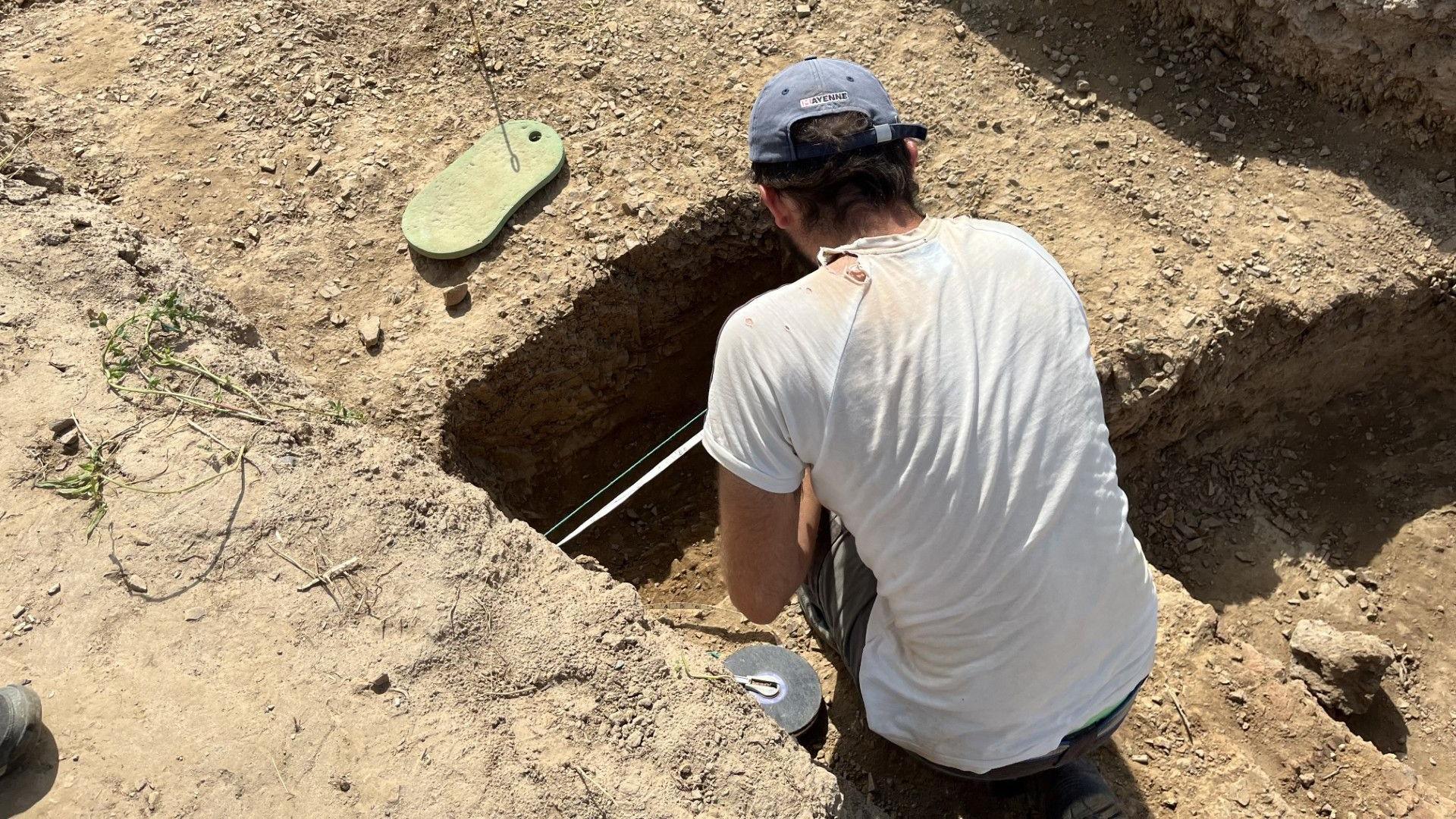
Pottery dating from between the 4th and 1st centuries BC was found
- Published
An archaeological dig in a field near Mont Cochon, Jersey, has provided insight into life in the island more than 2,000 years ago.
Dr Hervé Duval-Gatignol, Société Jersiaise’s archaeologist, led the team that has uncovered several artefacts indicating the area was once the site of an Iron Age farmstead.
"This is an incredibly promising site," he said.
"It's really useful for children and education because we will know so much more of the past and what was going on here during the same period as the coin hoards".
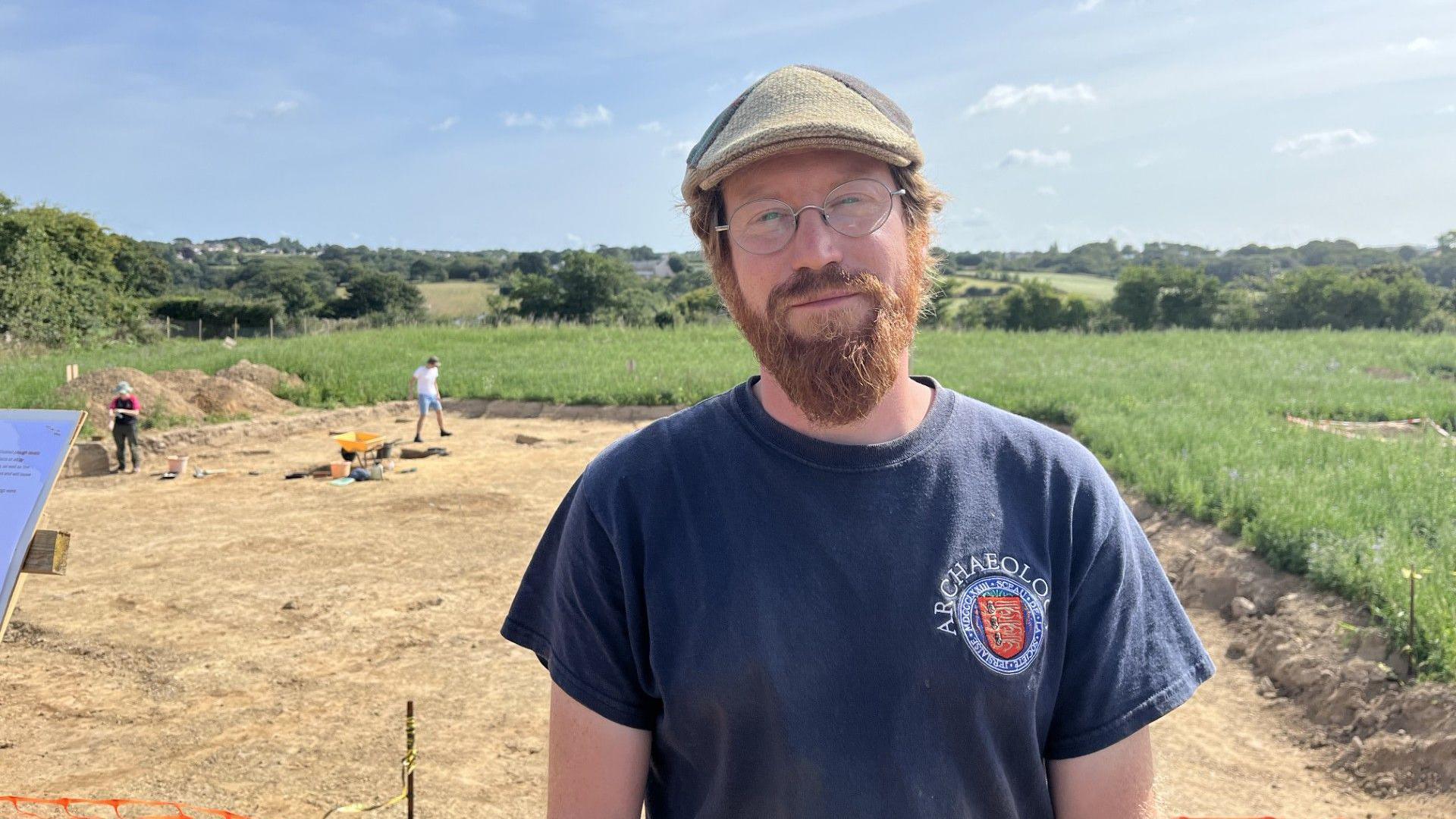
Dr Hervé Duval-Gatignol said the artefacts would be examined further
Since excavation work started earlier this month, the team has found evidence of pottery dating from between the 4th and 1st centuries BC, alongside a clay spindle whorl that hints at past daily activities on the site.
The team also uncovered a large number of limpet shells, which represent household waste from the period, providing insight into the diet of the islanders.
Animal bones had also been preserved by the limpet shells.
"We still need to get a proper identification of the bones, we think there are some cows that would have probably been raised on site," said Dr Duval-Gatignol.
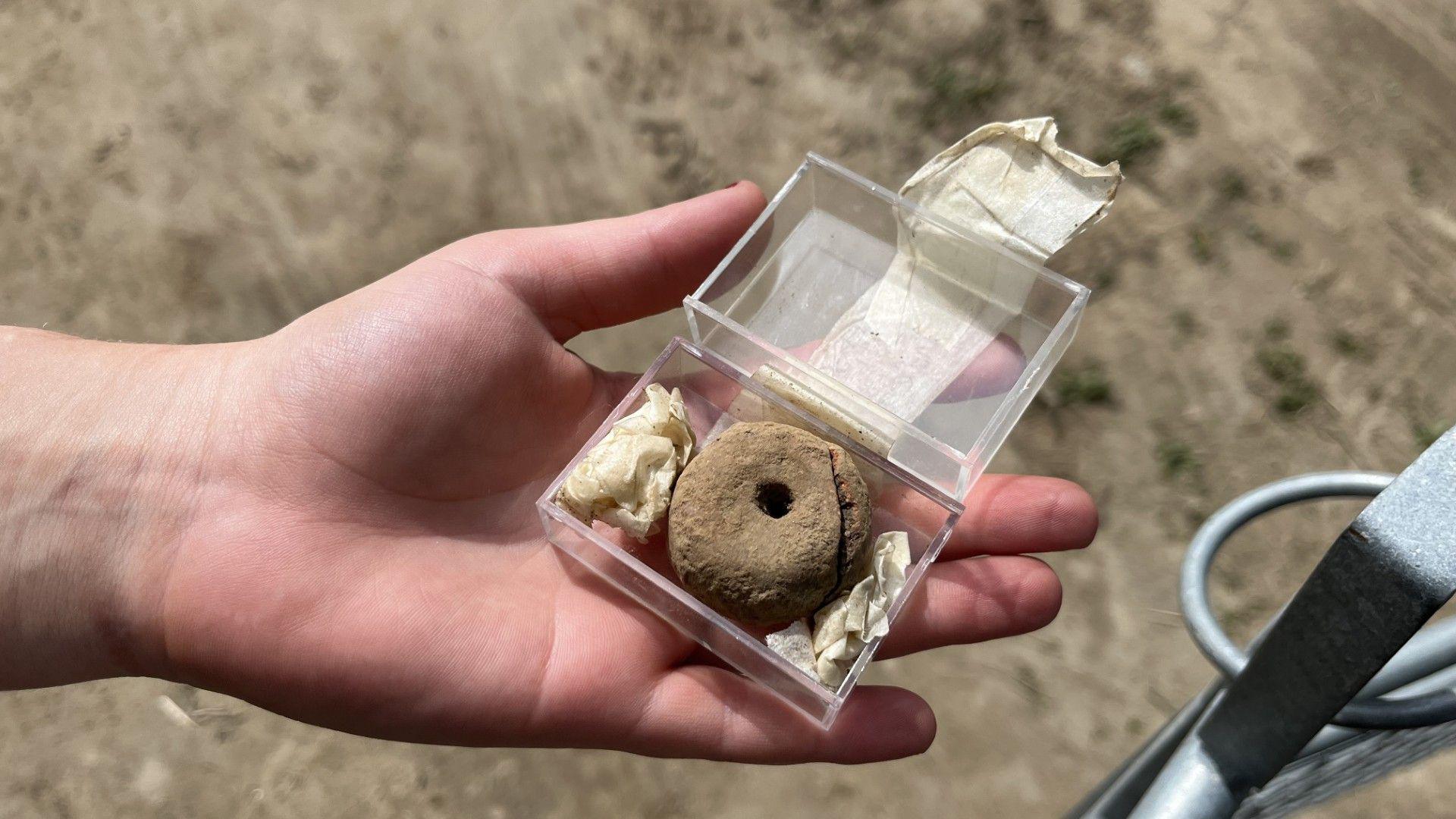
A clay spindle whorl hints at past daily activities on the site
The excavation effort has been supported by local volunteers, as well as students from the UK and the University of Rennes.
"I had absolutely no expectations really, I didn't know what we were going to find here," said Emilia McCammon, a UCL archaeology student.
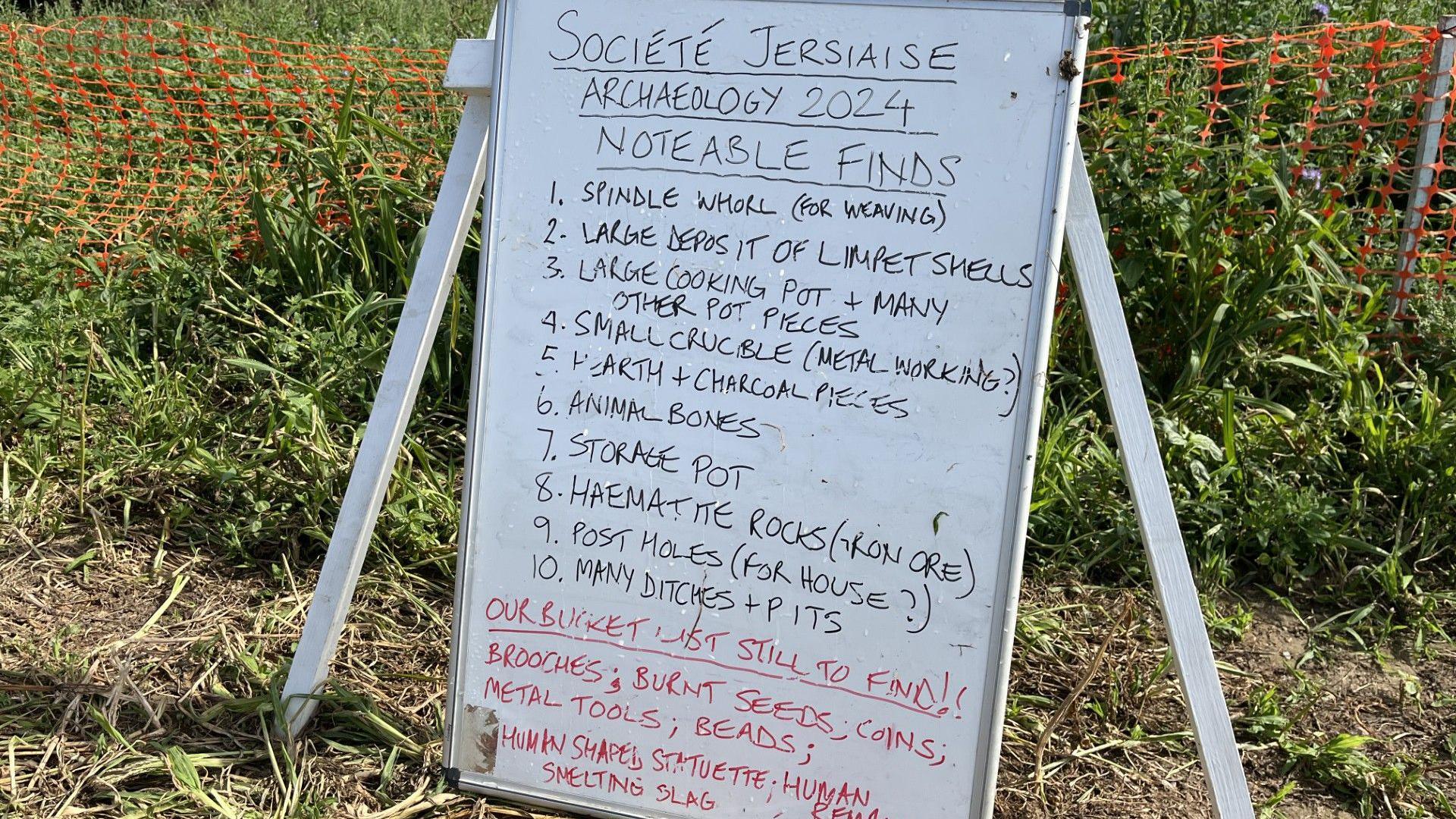
Limpet shells represent household waste from the period were found
The artefacts are to be examined further and the excavation site is due to be returned to its former state.
"In a couple of weeks, a month - you'll see nothing and it's like we were never here," said Dr Duval-Gatignol.
Follow BBC Jersey on X (formerly Twitter), external and Facebook, external. Send your story ideas to channel.islands@bbc.co.uk, external.
Related topics
Related internet links
More stories about archaeology
- Published19 May 2024

- Published27 December 2023
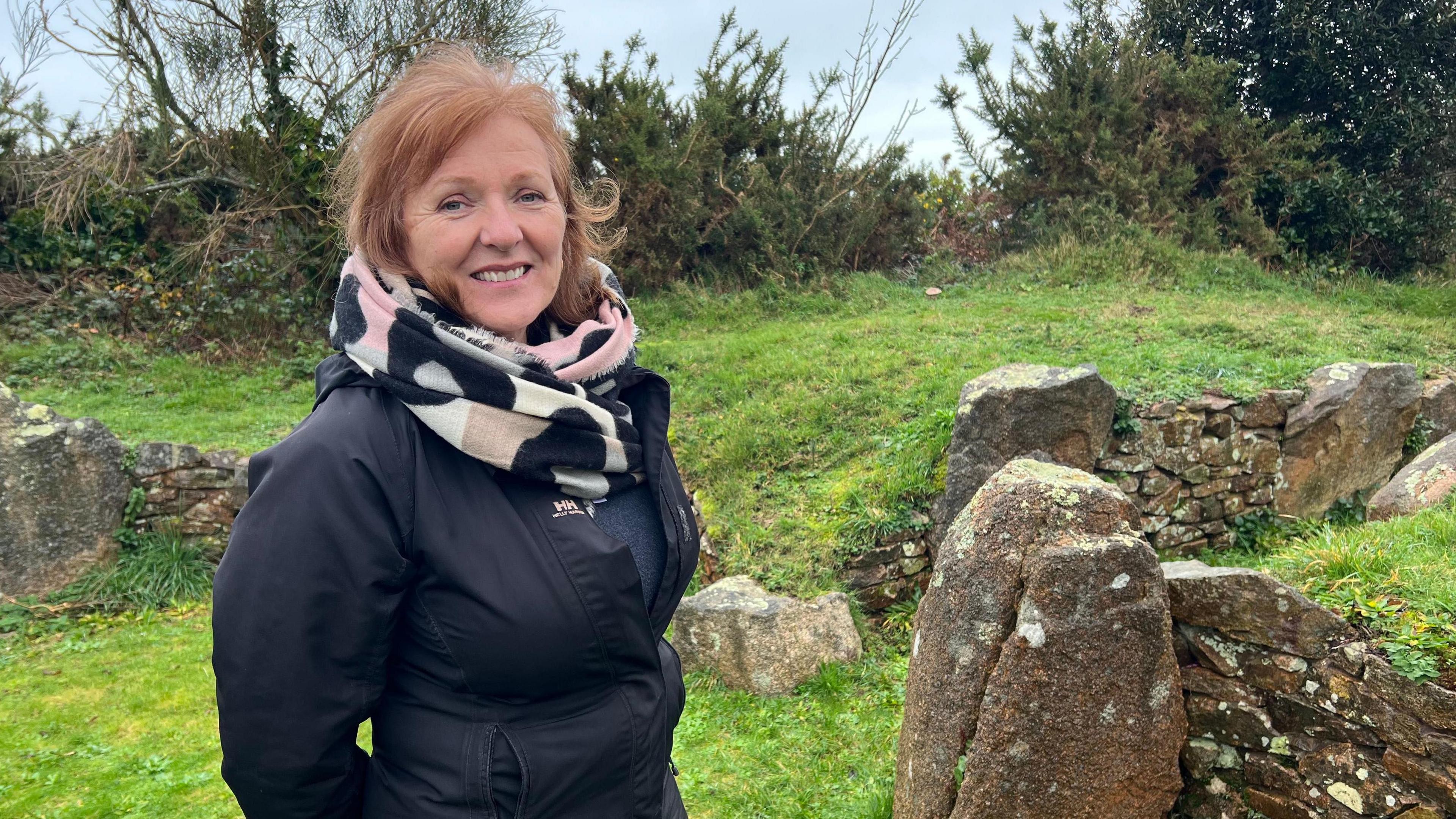
- Published5 October 2023

- Published8 April 2023
